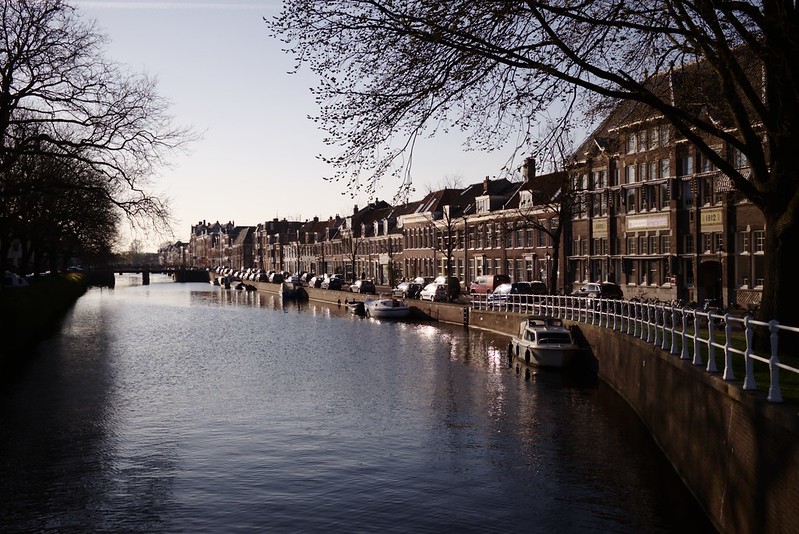When monarchs die and knock everything else out of the headlines, it gets harder than usual to stay informed about critical environmental issues. That’s when we start to collect the news items that fall through the cracks.
Welcome to Links From the Brink
Step Back:
California Gov. Gavin Newsom signed a suite of new climate bills into law this month, including a long-overdue requirement that will create a 3,200-foot buffer zone between oil wells and homes, schools, parks, and public-facing businesses.
This represents a major environmental justice victory for the Black, Latino, Indigenous and low-income communities most affected by the pollution for these wells — as well as a major setback for the fossil fuel industry and its advocates, who claimed the bill would lead to “energy poverty.” (Oh, their poor corporate pocketbooks.)
Other states should now follow California’s lead, because this isn’t an uncommon problem. I remember visiting a Colorado elementary school in 2019, as part of a tour organized by the Society of Environmental Journalists, where a fracking plant loomed 1,000 feet behind an empty baseball diamond and playground. Residents spoke to us about noise pollution and a host of health issues from the well’s emissions. That fracking site — built in a poor community of color — made worldwide headlines (residents even got their story onto The Daily Show earlier that year), but similarly affected neighborhoods around the country remain in need.
No More ‘We Have the Meats’?
Here’s another innovative new law: The Dutch city of Haarlem just passed legislation to ban advertisements for meat in public spaces — part of a broader effort to restrict marketing efforts for products and services that contribute to climate change.
Also on the chopping block: ads for oil and gas, fossil-fuel-powered vehicles, vacation flights and more.
Alas, the ban will take two years to kick in (gotta respect those long-term contracts), and it won’t affect messages sent over the airwaves. But still, we’ll take more of this to go, please.

Innovative Idea # 3:
A tax on meat. It’s theoretical for now, but it’s an idea so crazy — and so potentially beneficial to the climate — that it just might work.
As Long As We’re Talking About Food…
Over the past few months, a lot of our friends and colleagues have made the switch from “natural gas” powered burners to induction cooktops — devices that cook with a combination of electricity and magnetics.
Induction has a reputation for being more energy efficient than so-called “natural gas” (methane and ethane, mostly), but the devices remain pricey in the United States, where they’re still a niche item. Grist crunched the numbers and found that energy and emission savings are, indeed, worth a look, especially if you live in an area that gets more of its electricity from renewables.
At the same time, though, they found the current high cost to buy a new induction cooktop negates some of the savings, and that other choices might have a bigger overall impact on the planet:
Emissions from cooking overall are relatively small compared to things like transportation, travel or home heating. If you want to limit your carbon footprint, buying an induction stove is probably not the best bang for your buck. Something like getting an electric bike, an electric vehicle, or switching your home heating system over from fossil fuels to heat pumps might go a little bit further.
But if you’re looking to improve your indoor air quality — and through that, your health — getting rid of natural gas makes even more sense, as environmental health expert Jonathan Levy wrote in The Conversation:
If you live in a smaller home or one with a smaller closed kitchen, and if someone in your home has a respiratory disease like asthma or chronic obstructive pulmonary disease, exposures may still be concerning even with good ventilation. Swapping out a gas stove for one that uses magnetic induction would eliminate this exposure while also providing climate benefits.
Whatever choice you make, this serves as a reminder that natural gas is bad for both the planet and our bodies. (It also reminds me that sometimes raw food works, too. Pass the carrots.)
One Last Word in Food
Climate change and extreme weather have already dramatically increased hunger and starvation around the world, so every little bit we can cut back on emissions and food waste helps.
This Month’s Top Three Victories:
-
- The proposed Formosa Plastics plant in Louisiana got its air permits yanked by a federal judge — a big setback for the petrochemical industry and a major victory for polluted communities who have fought the plant for years.
- Patagonia founder Yvon Chouinard and his family donated the entire $3 billion company toward fighting climate change. In a statement the company said “every dollar that is not reinvested back into Patagonia will be distributed as dividends to protect the planet.” That’s expected to total about $100 million a year.
- The United States got 24% of its electricity from renewable sources in the first half of 2022. That only includes power generated at the utility scale, not from sources such as home solar, but it’s still up from 21% during the first six months of 2021.
Not too shabby … and think how much more we could accomplish if we really put our minds to it.
S Is for Solar
Some victories are local. Case in point: More and more schools have turned to solar power to cut their energy costs. As The New York Times reports, these savings really add up, allowing cash-strapped schools “to upgrade facilities, help their communities and give teachers raises — often with no cost to taxpayers.”
Now that’s a lesson for the history books.
Royal Thoughts
The passing of Queen Elizabeth II marks the end of an era. Does the ascension of King Charles the III signal the start of something new? Well, as they say in the UK, ‘tis complicated. We’ve collected some of the best reading on the connections between the monarchy and the environment:
-
- King Charles III’s Climate, Environment Beliefs Are Messy
- African Bishops Mourn Queen, Hope King Charles Can Help Solve Climate Crisis
- Stop Calling Charles the “Climate King”
- King Charles’ Environmentalism May Test Relations With Truss
- From Plastics to Planes: How Has the Planet Changed on Queen Elizabeth II’s 70 Years on the Throne?
- Timeline: The Climate Crisis Through Queen Elizabeth II’s Life
- The British Monarchy Helped Mortgage Our Collective Future
- What Does Colonialism Have to Do With Climate Change?
- Colonialism Is Key Part of Queen’s Legacy for Indigenous Australians
- Indigenous Leader Calls for New Reconciliation Agreement With the Monarchy
- Canada Should Use This Moment to Return Crown Lands to Indigenous Peoples
Let’s End on a Serious Note (Cough, Cough)
The persistent wildfire smoke here in the Pacific Northwest got the better of me recently, forcing me to take a day off — my first climate change-induced sick day.
Damn, that made me angry. I don’t have the time — or the resilience — to deal with the headaches, tightness of breath, allergies, anxiety and other health problems thrust upon my body and mind by the actions (or inactions) of dishonest corporations and do-nothing elected officials.
And I’m one of the lucky ones. I work indoors, with decent air filtration and air purifiers. I have a job where I can take the occasional sick day. I have health insurance if things get even worse. I didn’t need to flee my home due to fire or floods — floods like the ones that killed thousands this month in Pakistan; fires like the ones that destroyed houses and communities around the country; or storms like the ones that have washed away homes in Puerto Rico and Alaska.
I also didn’t experience temperatures so high I passed out while trying to my job — and that’s not a rarity anymore. Study after study points to the health risks climate change poses to workers. Meanwhile pundit after pundit complains about the shrinking economy, the lack of people willing to work dangerous, demeaning jobs, and politicians in the pockets of big business complain about the “cost” of climate legislation.
The real cost is people, lives, and the destruction of our ecosystems and communities. The cost ain’t economic growth; growth is the disease.
Expect more sick days in the not-so-distant future, and worse: too many funerals accompanying them.
![]()
Previously in The Revelator:
Links From the American Brink: Abortion, Insurrection, Pollution


